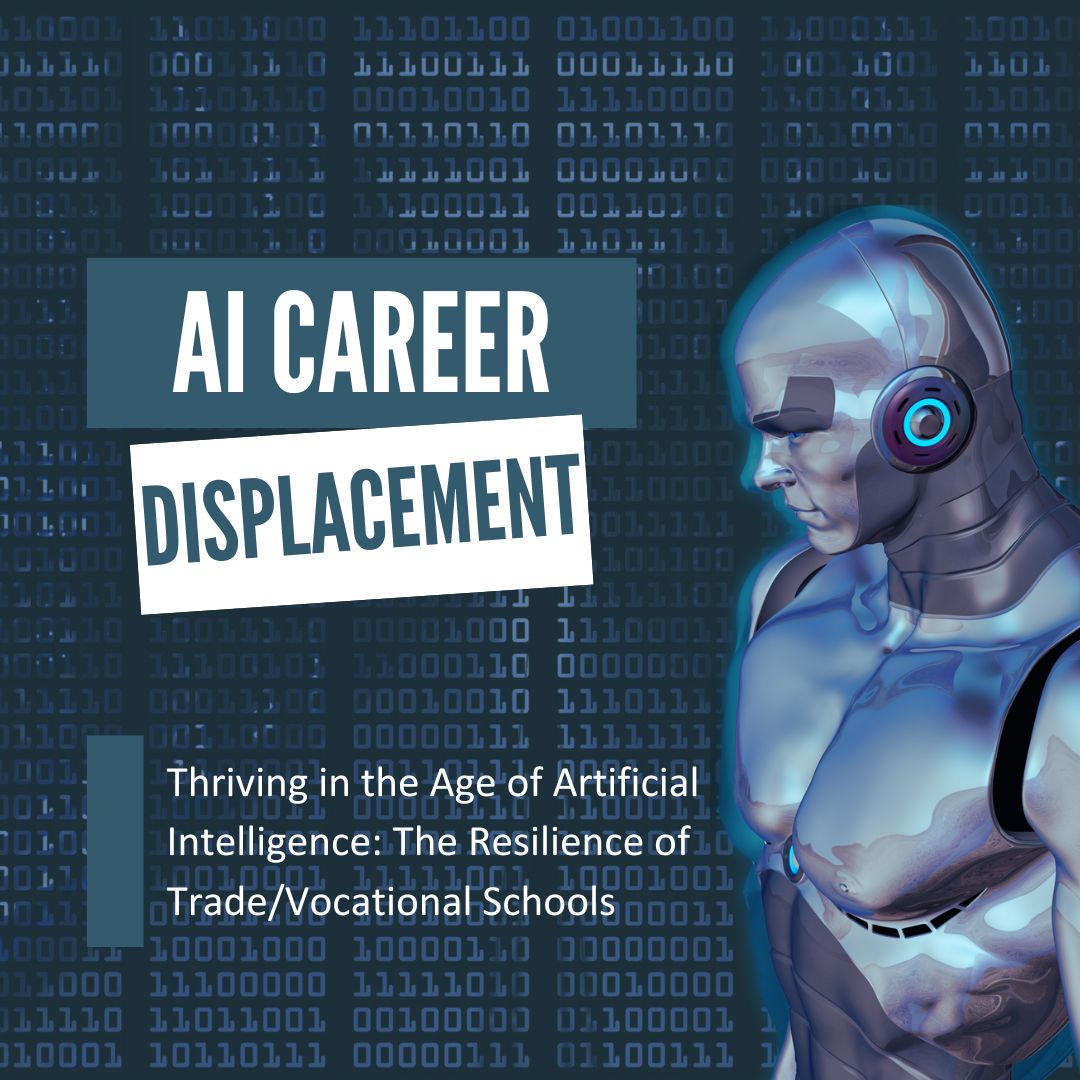
Published: December 22, 2023
Thriving In The Age Of Artificial Intelligence
The Resilience of Trade/Vocational Schools:
The rapid advancement of Artificial Intelligence (AI) and automation technologies has sparked concerns about the future of the job market. While some white-collar professions face the looming fear of job replacement, the outlook for manual labor and skilled trades may not be as bleak. In fact, trade/vocational schools are poised to play a critical role in equipping individuals with the expertise needed to thrive in the changing landscape.
The AI Revolution and Job Market Disruptions:
Artificial Intelligence and automation technologies have undoubtedly transformed various industries, enabling greater efficiency and productivity. However, the widespread adoption of AI has raised concerns about job displacement, particularly in white-collar professions. While it is essential to acknowledge the impact of AI on the job market, the outlook for manual labor and skilled trades is far from gloomy.
The Resilience of Manual Labor and Skilled Trades:
Many manual labor and skilled trade jobs require contextual understanding, adaptability, and problem-solving skills that are challenging for AI to replicate. Occupations like plumbing, carpentry, electrician work, and automotive repair involve intricate decision-making processes that require human intuition and expertise.
Trade/vocational schools provide practical, hands-on training that equips individuals with the skills necessary to excel in manual labor and skilled trades. These skills go beyond what AI can achieve, as they involve physical dexterity, craftsmanship, and the ability to navigate real-world scenarios.
The Shift in Secondary Education:
As the job market evolves, there is a growing recognition of the importance of vocational education. The traditional emphasis on white-collar professions is shifting, with secondary education institutions increasingly acknowledging the value of trade/vocational schools. The integration of vocational programs into the curriculum ensures that students have a diverse range of career paths, including those that offer stability and growth in the face of AI-driven disruptions.
Alleviating Financial Constraints with External Financing
The Role of External Finance Companies: External finance companies, like Monterey Financial Services Monterey Financial Services, purchase and service consumer receivables and can provide critical support to trade/vocational schools. These partnerships enable schools to access much-needed capital for program development, infrastructure enhancement, and faculty recruitment, thereby ensuring the availability of high-quality education and training.
Empowering Students: External financing solutions offered by finance companies alleviate financial constraints for students. By providing flexible payment options, students can pursue vocational education without being burdened by the fear of economic hardship. This support empowers individuals to acquire in-demand skills and opens doors to a range of lucrative career opportunities immediately after graduation.
While concerns about job displacement due to AI are valid, trade/vocational schools remain resilient and poised for growth. They are providing essential skills that AI can't emulate, making them invaluable players as we prepare our future workforce. By embracing vocational education and external financing, we can foster a resilient and adaptive workforce that thrives.
What do you think about this shift? Are we ready to redefine our perception of education and skills? Let's start a conversation.




